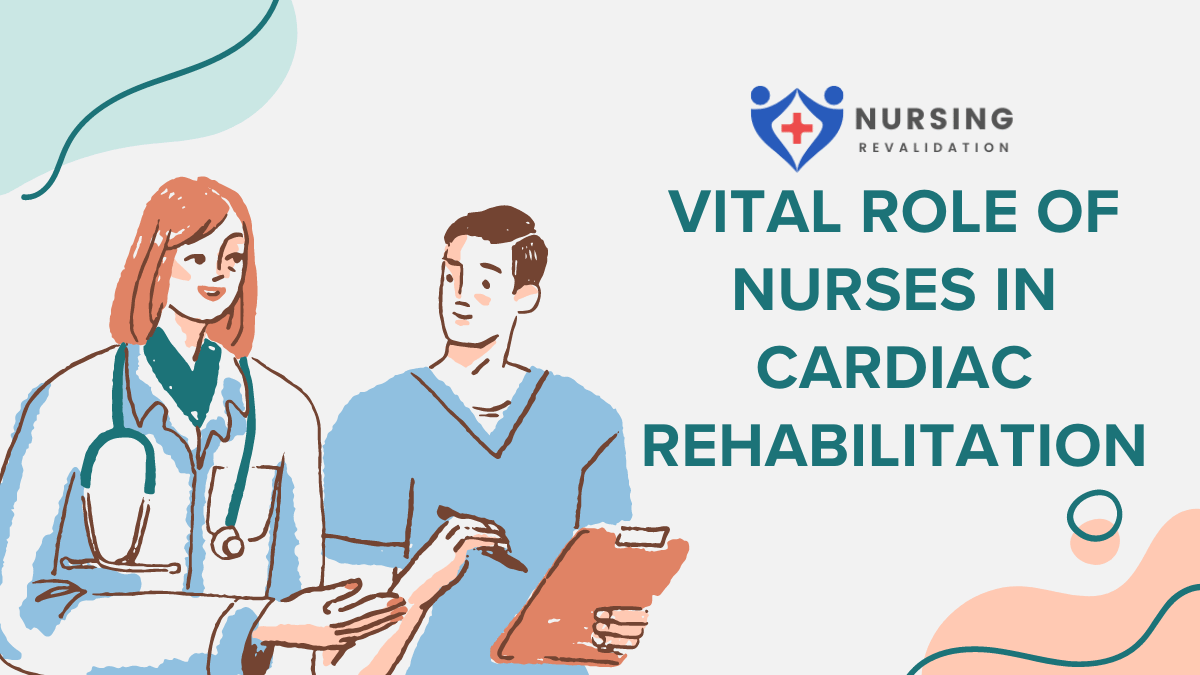Cardiovascular diseases remain a leading cause of mortality worldwide. However, advancements in cardiac rehabilitation have significantly improved patient outcomes and quality of life. Behind this success lies the indispensable contribution of nurses. In this comprehensive guide, we delve into the multifaceted role of nurses in cardiac rehabilitation, exploring their responsibilities, expertise, and impact on patient care.
Understanding Cardiac Rehabilitation
Before delving into the role of nurses, it’s crucial to understand what cardiac rehabilitation entails. Cardiac rehab is a structured program designed to improve the cardiovascular health of individuals who have experienced heart attacks, heart failure, or other heart-related conditions. It typically involves a multidisciplinary approach, including medical professionals, exercise physiologists, dietitians, and, notably, nurses.
Table: Overview of Nurse Responsibilities in Cardiac Rehabilitation
| Nurse Responsibilities | Description |
|---|---|
| Nursing Assessment and Care Planning | Conduct comprehensive assessments and develop individualized care plans. |
| Patient Education and Counseling | Provide information, support, and counseling to empower patients in managing their condition. |
| Monitoring and Support during Exercise Sessions | Monitor patients during exercise, ensuring safety and effectiveness of the program. |
| Medication Management and Symptom Assessment | Oversee medication adherence, educate patients, and manage symptoms as needed. |
| Psychosocial Support and Mental Health Care | Offer emotional support, coping strategies, and referrals for mental health services. |
The Role of Nurses in Cardiac Rehabilitation:
Nursing Assessment and Care Planning: One of the primary responsibilities of nurses in cardiac rehab is conducting comprehensive assessments of patients’ health status. This includes evaluating cardiac function, identifying risk factors, assessing psychological well-being, and understanding patients’ readiness for lifestyle changes. Based on these assessments, nurses collaborate with other healthcare professionals to develop individualized care plans tailored to each patient’s needs.
Patient Education and Counseling: Education is a cornerstone of cardiac rehabilitation, empowering patients to take control of their health and adopt heart-healthy behaviors. Nurses play a pivotal role in providing patients with information about their condition, medications, dietary guidelines, exercise regimens, and stress management techniques. Moreover, they offer ongoing support and counseling to address patients’ concerns and facilitate behavior change.
Monitoring and Support during Exercise Sessions: Exercise training is a central component of cardiac rehabilitation, aimed at improving cardiovascular fitness and reducing the risk of future cardiac events. Nurses closely monitor patients during exercise sessions, assessing vital signs, monitoring ECG readings, and ensuring safe participation. They also provide encouragement, guidance, and modifications as needed to optimize the effectiveness of the exercise program.
Medication Management and Symptom Assessment: In addition to exercise and lifestyle modifications, medication management is essential for controlling risk factors and preventing complications in patients with cardiovascular disease. Nurses oversee medication adherence, educate patients about their medications, and monitor for potential side effects or drug interactions. They also assess and manage symptoms, intervening promptly to address any issues that arise during the rehabilitation process.
Psychosocial Support and Mental Health Care: Living with a cardiovascular condition can take a toll on patients’ mental and emotional well-being. Nurses offer invaluable psychosocial support, helping patients cope with anxiety, depression, and adjustment issues. They provide a listening ear, offer coping strategies, and refer patients to mental health professionals when necessary. By addressing the holistic needs of patients, nurses contribute to overall well-being and resilience.
The Impact of Nurse-Led Cardiac Rehabilitation:
Research consistently demonstrates the significant impact of nurse-led cardiac rehabilitation programs on patient outcomes. Studies have shown that participation in cardiac rehab reduces mortality rates, decreases hospital readmissions, improves functional capacity, and enhances quality of life for individuals with heart disease. Nurses play a central role in achieving these positive outcomes through their expertise, dedication, and patient-centered approach to care.
Conclusion:
In conclusion, nurses are indispensable members of the cardiac rehabilitation team, contributing expertise, compassion, and support to improve the lives of patients with cardiovascular disease. Their multifaceted role encompasses assessment, education, monitoring, medication management, and psychosocial support, all aimed at optimizing patient outcomes and promoting heart health. As we continue to advance in the field of cardiac rehabilitation, let us recognize and celebrate the vital contributions of nurses in this critical aspect of cardiovascular care.

